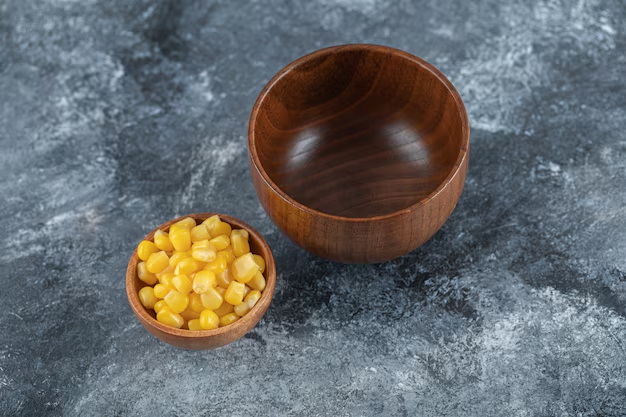How Long Do Egg Yolks Stay Fresh in the Refrigerator?
Eggs are a staple in kitchens around the world, beloved for their versatility and nutritional benefits. Whether you're baking a cake, scrambling a quick breakfast, or crafting an intricate soufflé, eggs are often a key ingredient. However, when it comes to the different parts of an egg – specifically the yolk – questions often arise about proper storage and shelf life. How long do egg yolks stay fresh in the refrigerator? This guide aims to unravel this mystery, exploring not only the longevity of egg yolks in the fridge but also providing useful tips for storage and maximizing freshness.
Understanding Egg Yolks: A Brief Overview
Egg yolks, the golden center of the egg, are rich in nutrients such as vitamins A, D, E, and K, as well as essential fatty acids and proteins. They are prized in cooking for their emulsifying properties and ability to enrich flavors and textures. Because of these properties, many recipes call for yolks specifically, leaving us with the practical question of how best to store them when separated from their whites.
How Long Are Egg Yolks Good in the Refrigerator?
On their own, egg yolks can be stored in the refrigerator for up to 2 days. This short shelf life is due to their composition, which can support microbial growth more readily than when they are within the whole egg. Here are some storage tips to ensure they remain fresh during this time:
- Use an Airtight Container: Store the yolks in an airtight container to minimize exposure to air, which can cause them to dry out and develop an unappetizing film on their surface.
- Submerge in Water: If you plan to use them within a day or two, consider placing the yolks in a small container and covering them with cold water. This layer of water helps maintain moisture and prevents any exposure to air.
- Label & Date: Always label your container with the date, ensuring that you can track how long the yolks have been stored.
Extending the Shelf Life of Egg Yolks
If you find yourself with extra egg yolks and a need to extend their shelf life, there are several methods beyond short-term refrigeration:
Freezing Egg Yolks
Freezing is an excellent option for extending the shelf life of egg yolks for up to one year. However, due to their high-fat content, yolks can become gelatinous and challenging to work with once thawed. To combat this:
- Add Salt or Sugar: Beat the yolks with a pinch of salt (for savory dishes) or sugar (for desserts) before freezing. This modification helps maintain their texture upon thawing.
- Use Freezer Bags or Ice Cube Trays: Portion the yolks into freezer bags or ice cube trays for easy access, labeling them with the date and whether you've added salt or sugar.
Preserving in Oil or Salt
For culinary enthusiasts, preserving yolks in oil or salt may be an enticing option, offering up to a month of extended shelf life in the refrigerator:
- Salt Cure: Coat the yolks in a thick layer of salt and let them cure for several days in the fridge. As they firm up, they can be grated over salads or pasta dishes for added flavor.
- Oil Immersion: Store yolks submerged in a neutral oil. This method is popular in some cuisines and can impart unique flavors to the yolks.
How to Tell If Egg Yolks Have Gone Bad
Even when stored properly, knowing how to identify spoilage is essential. Here are some indicators that your yolks have spoiled:
- Unpleasant Smell: Fresh yolks have a neutral or slightly eggy scent. If you notice any sulfurous, sour, or foul odors, it's a sign of spoilage.
- Discoloration: Yolks should maintain a vibrant yellow or orange hue. Any greying or dullness signals that they may no longer be good.
- Texture Changes: Watch for any sliminess or congealed textures, which can indicate spoilage.
Practical Cooking Tips for Using Egg Yolks
Beyond storing and preserving, understanding how to incorporate egg yolks into your culinary endeavors can greatly benefit your cooking. Here are some versatile uses:
- Enriching Sauces and Custards: Yolks are an essential component in classic sauces like hollandaise and béarnaise, as well as creamy custards for desserts.
- Thickening Agent: Yolks can thicken soups and stews, adding richness and depth.
- Homemade Pasta: For those venturing into pasta-making, yolks bring a silky texture to homemade dough.
Common Egg Yolk Storage Challenges & Solutions
It’s natural to encounter challenges when trying to store egg yolks. Here are some frequently faced issues and solutions:
- Egg Yolk Clumping: If your frozen yolks clump together, try adding a small amount of salt or sugar before freezing. This additive keeps them separate and easier to portion out for recipes later on.
- Water Evaporation: When submerging yolks in water in the refrigerator, it's possible for water to evaporate if not tightly lidded. Make sure the container is sealed well, and check periodically to ensure the yolks remain covered.
A Handy Summary: Storing Egg Yolks
Here’s a quick-reference guide for your journey with egg yolks:
- Refrigerator Freshness: Up to 2 days.
- Freezing: Up to 1 year; add salt/sugar to prevent gelatinous texture.
- Salt/Oil Preservation: Up to 1 month in the refrigerator.
- Signs of Spoilage: Unpleasant smell, discoloration, slimy texture.
Elevate Your Culinary Creations with Egg Yolks
Knowing how to store and handle egg yolks unlocks a new world of culinary possibilities. Whether savoring the richness they bring to a dish or simply reducing waste by preserving what is left over, attention to storage and freshness is key. By taking care to store yolks properly, you not only ensure their longevity but also elevate your cooking with this versatile ingredient, maximizing both your resources and your plate’s potential.

